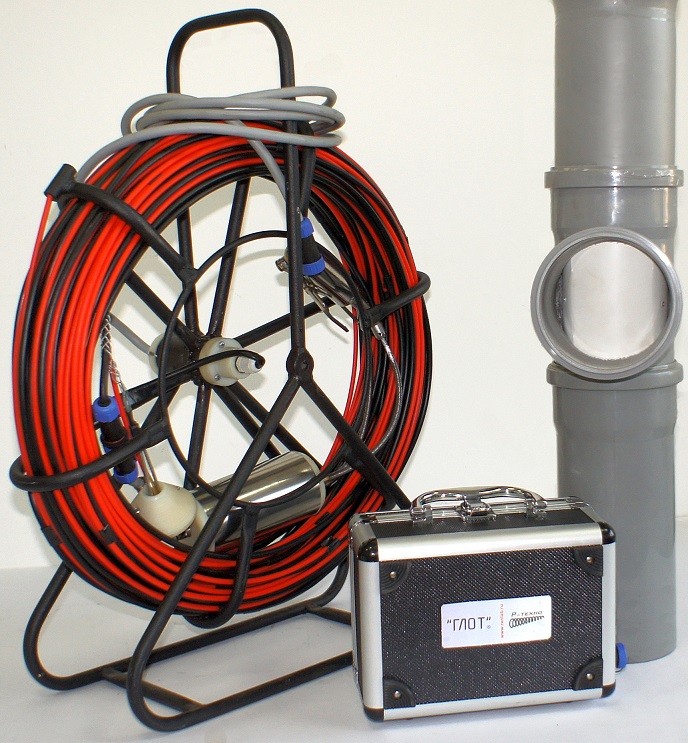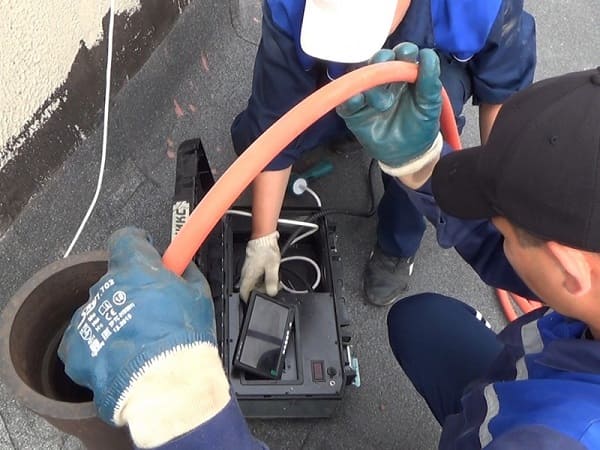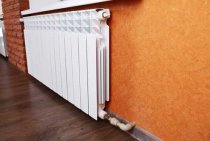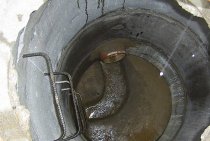On the legality of shutting down sewers
Of course, blocking the sewer pipe is one of the worst measures. After all, then a person cannot fully use the water supply, and in general, living conditions worsen. That is why such an action motivates citizens to pay off the debt after all. However, there are those who are interested in whether it is legal to turn off the sewer.
On the one hand, due to the appearance of a stub, the apartment ceases to be habitable. Because of this, the useful area of the whole house becomes smaller, and this can only be done on the basis of a decision made at the general meeting. Moreover, in order to limit the supply, it is necessary to carry out sealing, and this cannot be done with sewage. Therefore, the debtors conclude that this measure will be considered illegal.
However, it is worth considering the position of the court on this issue, because the decision is not always made in favor of citizens. Firstly, there is no evidence that shutting down sewerage leads to a decrease in the usable area of a high-rise building, this is, in principle, impossible to confirm. Secondly, the rule on the general meeting is ignored, since there is no interference with the common property. Thirdly, a plug in the sewer is considered an ice cream.
As a result, the court decides that this measure is quite legal if the other rules are observed. We are talking directly about the fact that only two months after the appearance of the debt, you can send requests to pay the accumulated amount. At the same time, it is necessary to warn that if a person is inactive, utilities will be turned off. A month after sending the request, you must notify that in 20 days they will block the sewer for debts
It is important to indicate the exact date and time when specialists will be sent
In the event that the debtor does not repay the debts and does not ask for a delay, his apartment is left without a sewer pipe. Of course, this creates serious difficulties in the economy, but it is useless to file a complaint with the court. If everything was done in accordance with the law, then the person can only deal with debts.
The procedure and features of sewer blocking to debtors
The first thing to note, speaking of limiting and completely blocking the drainage from the apartment for non-payment of utility bills, is that the debt to the Criminal Code itself is not enough. Two conditions are required:
- The statute of limitations is 2 or more months.
- Compliance with the procedure for blocking sewers to debtors.
From the first moment everything is clear. But the second should be considered in more detail.
The procedure for blocking sewers to debtors prescribes:
- The management company is obliged to submit a request for payment of utility services in writing. In doing so, there must be:
- the amount and term (with the transfer of months) of the debt;
- the time available to pay off the debt is usually 20 days.
The document is handed over in person or by sending a letter with a list of attachments and notification of receipt.
- The management company is obliged to report on the restriction or complete blocking of drainage from the apartment 3 days in advance.
- The UK has the right to install a plug only if:
- there are no transfers from the debtor on the bank account;
- plumbing is not suitable for restriction.
Complete shutdown of drainage from the apartment can take place:
- if the water supply has straight sections without branches;
- if there is 0.8 m of space above the riser;
- if the pipe matches the material.
Thus, under two conditions, the prescription of the debt is 2 or more months and the observance of the procedure for blocking the sewerage to the debtors, the management company can draw up an agreement to turn off the water drainage system from the dwelling.
The process of blocking and resuming services
After the explanatory and preventive procedure carried out has not yielded results, the debtor does not pay the dog, there is no technical possibility to impose a restriction, then the company's employees establish a blockade on the water supply system. The invention, thanks to which the sewer is closed to debtors, appeared recently and at first was used with conflicting opinions on the part of the authorities.
To do this, we need to prepare the following tools:
- strong hook;
- wrench;
- several wrenches;
- pliers;
- dowels;
- hammer;
- flashlight.
It's no secret that all residents of apartment buildings are required to pay utility bills in a timely manner, including for the use of sewerage. But some citizens manage for months, or even years, not to pay for the use of housing and communal services. The old methods of dealing with malicious non-payers did not bring the desired result. As a result, housing and communal services workers began to look for other ways to influence such residents. Logic suggested that such debtors needed to stop supplying utilities, but how to do this without entering the apartment? Relatively recently, a method was invented that allows you to block the sewer without entering the apartment. Photos and videos from our article will help you understand the features of this method in more detail.
From a formal legal point of view, the resolution does not have the force of law. However, in practice, lower courts rarely issue decisions that contradict the findings of the Supreme Court.
It is almost impossible for the debtor to remove the blocking on their own. The fact is that:
- this requires special equipment, which only management companies have (however, other firms, as well as private masters, have it, but we will talk about this later);
- this requires dismantling the toilet, which is quite problematic.
Sometimes more drastic measures are required than those provided by judicial practice. Today, the RSO has the right to suspend the supply of utilities in the case when the consumer has a debt of more than two months and, after receiving a demand to pay it, does not comply with this instruction. What do they do in this case for various utilities?
- Gas. The gas stove is disconnected from the gas pipeline and muffled;
- Electricity. Meters are disconnected from the central network;
- Water pipes. Shut off and seal water taps. Only cold water is left untouched;
- Drainage. A special plug is placed on the sewer outlet.
In writing, send a warning to the debtor that he needs to repay the amount of his debt on payment of utility bills. The letter must indicate the specific amount of the debt, the periods for which the payment was not made, as well as the specific period during which it is proposed to make payment (is 20 days). The document must be handed over with a receipt or sent by registered letter with notification of its receipt.
What to do when they blocked the sewer system for debts
When a plug is placed, this causes a partial or complete restriction of water drainage from an apartment or house.
There are a lot of stub designs:
- steel;
- plastic;
- inflatable;
- Trellised.
And they are constantly being upgraded, as violators very often try to remove the restrictor from the pipe on their own. This action has serious consequences. One of them is the clogging of the sewer drain and the flooding of other apartments. In addition, the unauthorized removal of a stub is a matter of jurisdiction, and judicial practice has a lot of cases related to this violation.
If the plug was placed without warning, even bad debtors have the right to file a counterclaim against the management company in court.
Is it legal to disconnect for non-payment of utilities
If we turn to the law, then disconnecting the debtor from the sewer is lawful and does not violate any norms of the law. If you follow this procedure according to all the rules. As already mentioned, it is mandatory in the procedure for disabling the debtor to notify him of the upcoming blocking. Otherwise, it will be considered a violation of the law. Including violation of technical standards that led to damage to the property of other citizens is also a violation of the law, and the management company will be forced to compensate for the damage. The decision to block the drainage system is taken directly by the management company. Thus, such a decision does not require a judicial act or permission from other authorities.
 Shutting off utilities for non-payment is legal
Shutting off utilities for non-payment is legal
The blocking itself is performed in the following cases:
- The amount of debt exceeds 100 thousand rubles;
- Other methods of influencing the debtor, such as fines and forfeits, turned out to be ineffective;
- The delay in payments is quite long.
In most cases, sewers are blocked by specialized companies that provide their services on a paid basis.
Can the sewers be turned off for non-payment
Managing enterprises in their activities rely on the provisions of the Housing and Civil Code. According to judicial practice, the debt is not collected in all cases. This is due to the fact that bailiffs in cases with utilities do not have mechanisms for guaranteed collection.
Government Decree No. 354 establishes the rights and obligations of the supplier to legitimately compel the defaulter to repay the debt. Shutting off the sewer due to non-payment is legal.
Paragraph 117 of the Resolution states that the management company has the right to stop the supply of services in cases of lack of full payment, but after prior warning. In the same paragraph, there was no mention of a judicial decision to carry out such a measure. Written notification of the owners living in the house is sufficient.
What to do if you blocked the sewer for debts
If there is a large debt and the sewer is turned off, the consumer will need to pay in full. If the amount is too large for a one-time repayment, restructuring is available.
To do this, they contact the utility company and write an application addressed to the management. The appeal indicates the reason for the debt, and also asks for permission to pay the amount in installments over several months.
It is unprofitable for the company to get involved in litigation, so it makes concessions. If the payment schedule is observed, sanctions in the future have no right to apply.
Expert answers
Vasilich:
Legally, this is absolutely legal. In accordance with the Housing Code of the Russian Federation, the service is supplied for money. From the Rules for the provision of public services (Decree No. 354): clause 119. Unless otherwise provided by federal laws, decrees of the President of the Russian Federation, decrees of the Government of the Russian Federation or an agreement containing provisions on the provision of public services, the contractor, in the event of incomplete payment by the consumer of public services, has the right after a written warning (notice) of the consumer-debtor, limit or suspend the provision of such utility services in the following order: imposing restrictions on the provision of public services, the contractor suspends the provision of such public services, with the exception of heating,and in apartment buildings, also with the exception of cold water supply - with a preliminary (3 days) written notice to the consumer-debtor by handing him a notice against receipt. Also now they began to apply the shutdown of email. energy.
Inga:
????This is a common house property. How do you imagine it at all? Shit riser flood?
Yura Pitersky:
It's best not to do this nonsense. the spider is easily removed from the apartment, through a revision.
if there is a court decision - collect according to the law. if bailiffs can’t find anything, foreclose on property (car, garden plot, etc.)
ALYONA:
Sewerage does not go only through the debtor's apartment, it is common house, so no one will block it. No one is interested in flooding the house in shit.
Alexander Mukhin:
sewerage is overkill
Yuri:
Whoever has nothing to pay for utilities should not worry, he will definitely not go abroad in the near future, and debts are collected only when leaving the country: They will shake alimony and non-payers on loans.
Your angel:
They can turn off electricity and hot water for debts. You went over the sewer.
Mikhail Ivanovich Ivanov:
Okay, I live on the first one. I'm not crying. Where can I plug the sewer if the riser in the high-rise building is shared? In my opinion, another media duck.
Best Answers
Khoja Nasreddin:
The decision of the court is the head of everything ..
Mila-Ya 39rus on RyXik:
the bailiff has enforcement proceedings
Babette ****:
I don't know the law. But in my opinion, the right of a service provider is enough, whose service has been used for so long and brazenly not paid.
moli:
Well, this is local amateur performance… but in general, yes, only by the court…. it’s just that they make it easier for you, otherwise it will exceed 50 tons, the amount is already too heavy
Veniamin Vitaminovich:
shit, never heard of that. But how? Pull apart the joints and plug with a rag or plugs? Well, then she herself will poke back and seri to her health
Dmitry 3D:
You must be formally notified at least 20 days in advance and again 3 days in advance. If this did not happen, and the sewer was blocked, you can complain about public utilities.
Bully:
are they doing it right, or do you want the neighbors to pay?
sorrow:
pay, Katyunya, otherwise you will go to shit on the street.
Alexey Lurie:
Shut off the sewer?))) How is that? Just wondering how it will physically look)))) Is this a joke?)))
By the tribunal's decision. Without the permission of the owner of the dwelling, only the police or the bailiff service can break into it. In this case, the police have no right to break in, and bailiffs can only come with a court decision. The court may oblige the debtor to pay and in case of failure to comply with the court decision, the bailiffs will come to describe the property. But I doubt that even our senile court would decide to block a person's shit))))
La Nochka:
Let him pay 1 tr.
Can't find the fire?
Toilets in churches are free.
Vladimir Petrov:
Representatives of the housing office come to you and warn you of a debt, and then they block it from the attic through the sewer riser. No court order needed
Alexei:
Notice must be 10 days (working), two weeks. With reference to the service agreement.
Put a rubber hedgehog, from the attic. Garbage, throw off the corrugation, pull it out with a hook.
But you will have to pay.
How to install a plug on the sewer
You can sympathize with defaulters as much as you like, but the law is the law, and before it everyone should be equal. How can public utilities influence those who refuse to pay for services, and fines and penalties do not solve the problem? Disconnecting from the sewer is, of course, a rather radical measure, but sometimes this is the only effective way. This could have been avoided if all citizens were conscious and would let public utilities employees into their homes to seal pipes.

As a rule, blocking of the sewerage is made by installation of special plugs. This allows you to ignore the lurking defaulter. However, when resorting to such a measure of punishment, management companies must strictly follow the instructions and comply with all the norms of technical rules so that the legality of such actions is not questioned.
These include:
- Checking the riser of the room for leaks. If the riser is damaged, then installing the plug can cause quite serious problems.
- Determination of the absence of branches from the riser.
- Using special equipment, check the system to avoid blocking the whole house.
- It is mandatory to notify the non-payer about the upcoming disconnection from the sewerage system 30 days before the blocking.
Plugs are installed so that they block the sewer pipe and do not allow a full drain. There is a modern blocker from the Sprut company. Otherwise, the utility runs a high risk of more problems either with the equipment or with a wrongful counterclaim if the notification was not followed up or was done within the wrong time frame.
The process of blocking and resuming services
Some non-payers may be interested in the question of where the stub is placed. Note that this action can be carried out both by employees of the RSO or the management company, and by hired specialists. For this purpose, people do not need to get into the apartment, it is enough to come to the attic or technical floor. It is there that there will be a central sewer riser, through which a plug is sent to the outlet related to the debtor's dwelling. As soon as it gets to the right place with the help of a probe and a video camera, the drain from the apartment is completely blocked.
In this case, other residents of a multi-storey building should not worry that they will also not have access to sewage. If they regularly pay for housing and communal services, then they will be able to enjoy all the benefits in full. Because the stub affects only one apartment where the debtor is located. Therefore, wastewater only from a particular housing is not discharged into the central riser.
Given the fact that the first thing that disappears is the ability to use the toilet, many people tend to pay off the debt right away. Naturally, they are interested in returning the opportunity to use the sewer pipe as quickly as possible. It should be understood that to begin with, you will need to fully pay off your debt. It is also possible to draw up and sign a payment schedule if the debt turned out to be large.
As soon as one of the above events occurs, you will need to write an application for the resumption of the service to the RSO or to the management company. Two copies should be served so that you can take one for yourself. From this moment, if a person has dealt with the debt, the plug must be removed within two days. If this did not happen, then it is already possible to apply to the judicial authority or to the prosecutor's office with a complaint against the utility provider.
Separately, we note that there are situations when specialists demand money from a former non-payer for unblocking the sewer system. It should be remembered that such actions are illegal, and nowhere is it indicated that a citizen is obliged to pay for blocking and resuming sewers. Therefore, when billing for these events, you can go to complain to the judicial authority.
In any case, we can conclude that disconnecting the sewer pipe always becomes a serious problem. Because even a few days without it will create difficulties for people. It will be much easier to immediately pay a communal apartment or at least respond to demands to pay off the debt. After all, if this is not done, then the result is already obvious, and they can, in addition to everything, seal up other housing services.If it is not possible to pay off the debt now, then it is often possible to agree on a deferment. Then you will not have to experience inconvenience, and it will be possible to immediately resolve the issue of debt. In the end, you still have to pay for it, because otherwise you won’t be able to live normally in an apartment.
Sewer blocking for debts
Is Sewer Shutdown Legal The topic of whether it is legal to shut off a sewerage service due to debt is quite relevant, as it does not have a clear definition of what is good and what is bad. Of course, the debtor must understand that in any case he will not go unpunished, therefore it is advisable to collect the amount right now in order to pay off the debt. But sometimes residents can go the other way, hiring lawyers and lawyers who will find arguments in favor of the fact that shutting off for non-payment of sewer is an illegal and even dangerous procedure.
In some ways they are right, but let's consider these arguments:
According to the forty-seventh resolution regarding the habitability standard, installing a plug on a pipe immediately turns an apartment into uninhabitable;
Also, the attention of lawyers is attracted by the norm of the thirty-sixth article of the LCD.
Sewer blocking for debts
A revolutionary step in this direction was the invention that allows you to install special plugs for sewers the riser of the debtor's apartment without going inside it. Remember that when you remove the lock with your own hands, there is a high probability of a failure in the operation of the common riser. Therefore, weigh all the pros and cons, and if the first ones still outweigh, then proceed.
The problem of non-payment of utility services by debtors is dealt with strictly. If the user does not heed the warnings, he is given stubs. The legality of the restriction of water disposal in this case is undeniable. The company has every right to block users of those services for which they do not pay. Few people are involved in charity work in our country, especially when it comes to the smooth operation of the sewerage system. Maintenance of this system is difficult and expensive, and no one likes to work for free. The main impetus for the introduction of this method was the fact that almost all debtors do not let housing and communal services representatives into their apartment who could seal water pipes. Naturally, employees of the management company and water utility services can enter the apartment only with the consent of the owner, so the situation could not be resolved for a long time.
This state of affairs provided the management companies with the opportunity to suspend or limit the debtors' sewerage using so-called "plugs". However, the question should be put differently, to what extent does this method of influencing the category of non-payers of utility services concern the interests and rights of other tenants living in the house?
The second system for blocking the sewer, "Kit", consists of: a probe, a control panel and a camera. Its advantages include:
- the presence of LED bulbs - thanks to this, it is easier to find an apartment;
- the presence of a compact control panel - thanks to this, you do not need to rent a car for specialists.
These plugs sometimes cause more problems for the neighbors of the debtors than for the debtors themselves. Sewage through the window or urine from the ceiling and just a constant stench is so-so fun.
Any service that is provided in housing and communal services must be paid. If this is not done, then it can simply be turned off, and then what to do? It will be impossible to live. This is especially true for water supply. The restriction of drainage is a real disaster, because it will be impossible to remove water from the sink, bathroom, toilet. Naturally, using all the plumbing will be much more difficult than if the system were functioning normally.
In a dispute about the legality of the installation of debtors for housing and communal services "stubs" for sewerage (aka "tamponing"), it seems that an end has been put. In March of this year, the Supreme Court outlined its position.
Our people have no conscience. When operating apartments, they use all the services that utilities can provide them. Many, of course, pay, and try to do it properly if the amounts in payment are available, but never allow a huge debt to appear. Others prefer to believe that everyone owes them, and housing and communal services are completely free for them.
But if for one reason or another you cannot pay off the debt and apply for an unlock to the Criminal Code, then you have only one way left - disconnecting the toilet bowl from the common riser and partially disassembling the common riser.
It should be noted that for the ordinary fact of non-payment of utilities it is impossible to turn off the sewer. This is due to the fact that the period of non-payment of debt must correspond to at least three months.The fact is that the owner carries out all the manipulations from his apartment. Conclusion Undoubtedly, the formation of debt is an unpleasant phenomenon not only for service companies, but also for the owner of the premises. The use of various measures by public utilities to recover the accumulated amounts is quite justified.
But every year, local authorities are increasingly beginning to react positively to this strict measure. As a result, it is used more and more frequently.
Residents in apartment buildings are required to make monthly utility payments for the use of housing and communal services in a timely manner and in full. However, sometimes unreliable citizens come across who do not pay for a communal apartment for months, and some for years.
Is it possible to turn off the water in a separate apartment
An even more frequent problem for those who have debts on utility bills is the shutdown of water supply by housing and communal services employees. But, as in the case of sewer plugs, this measure is extreme and in the same way is accompanied by many technical and legislative requirements. For example, hot water is turned off for at least three months of delay in payment. And turning off heating or cold water is completely illegal.
 Utilities can be turned off without the knowledge of residents
Utilities can be turned off without the knowledge of residents
One of the mandatory requirements for management companies when disconnecting a consumer from utilities is the official timely notification of the defaulter about the upcoming disconnection. If it is not possible to hand such a notification personally into the hands of the debtor and get his signature on receipt, the utilities have the right to turn to courier services or use the sending of a registered letter with a notification. In practice, it is not possible to turn off hot water in a separate apartment, since hot water is supplied through a common riser.
There are also cases in which it is possible to turn off services due to the fault of the residents of the house without prior notification:
- The emergency state of communication systems, threatening flooding of the residents of the house.
- Illegal connection of a tenant to any engineering system.
- Illegal changes in the design of communications by one of the residents of the house.
- According to the relevant order issued by the authorized body.
- Any engineering system was damaged or disabled due to the fault of one of the residents.
Despite the harshness of punishment and the firmness of employees of management companies, even non-payers have their own rights and ways to mitigate their guilt.
Mitigating circumstances may include:
- Confirmation of a long delay in wages. In this case, the debtor's fault is not due to unwillingness to pay, but to inability through no fault of his.
- The total family income is lower than the subsistence level.
- No source of income for the payer.
- The presence of minor children, as well as family members with disabilities.
In all of the above cases, a written confirmation of certain evidence of the inability of the payer to pay for the provision of services is required. Otherwise, the refusal to pay will be considered unreasonable, and utility employees will have every right to apply penalties.
In any of all possible cases, when one or another utility service was turned off, the right decision would be one thing - to start paying for the services provided and to prevent debts from arising. After all, if there are no delays, then the utilities will not have a reason to impose any fine or restriction.





